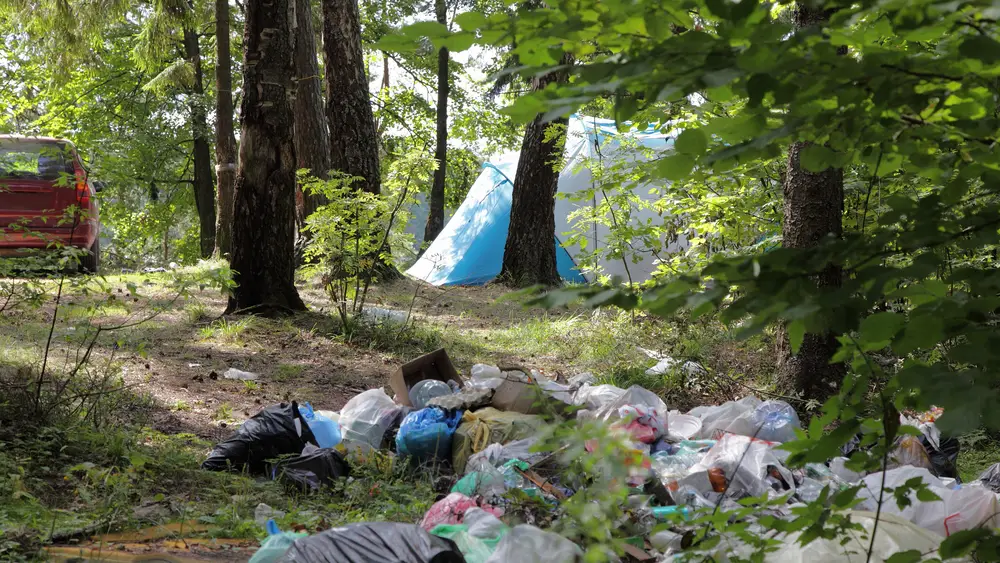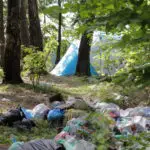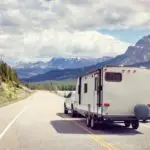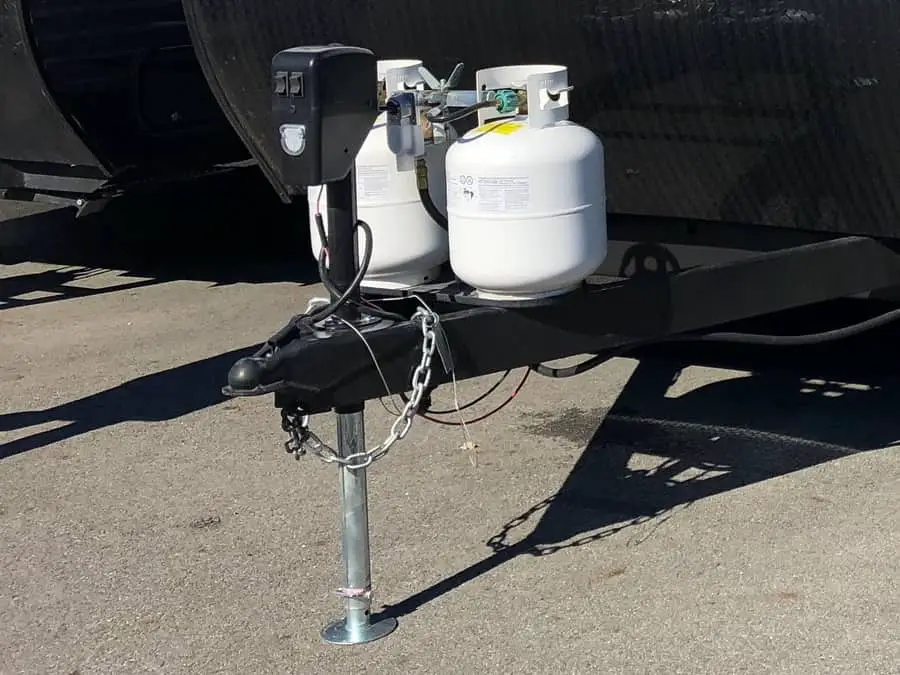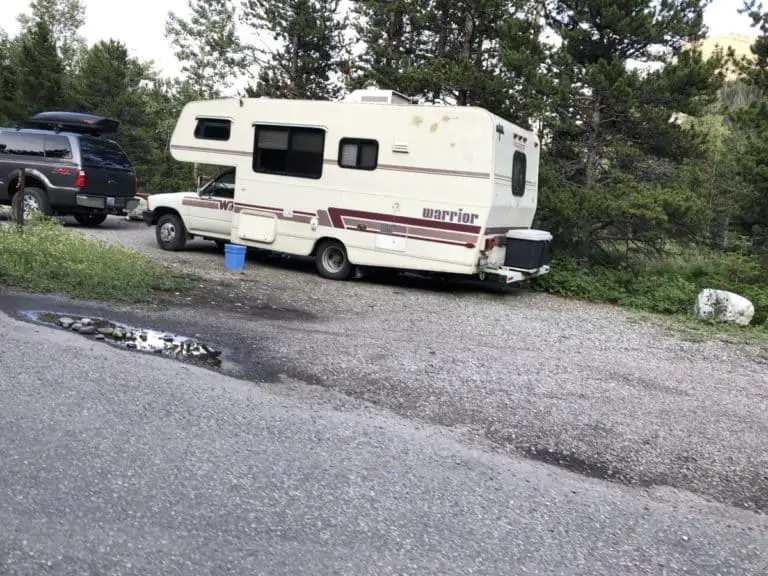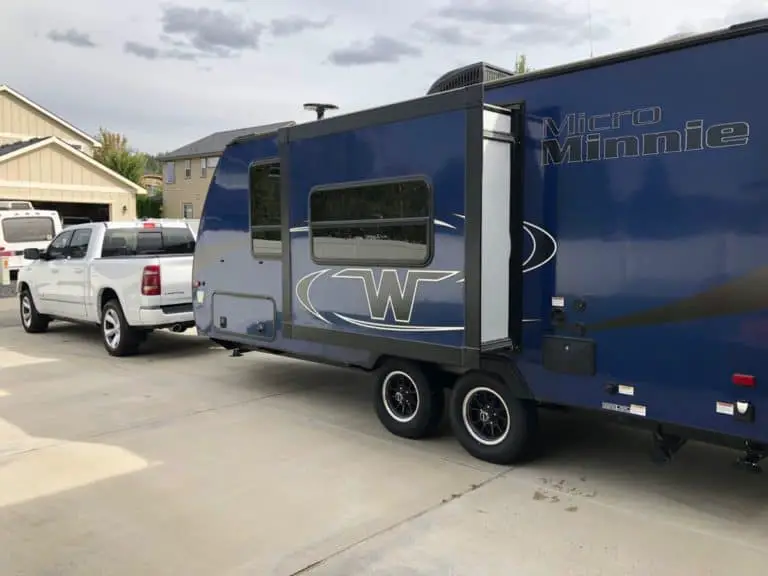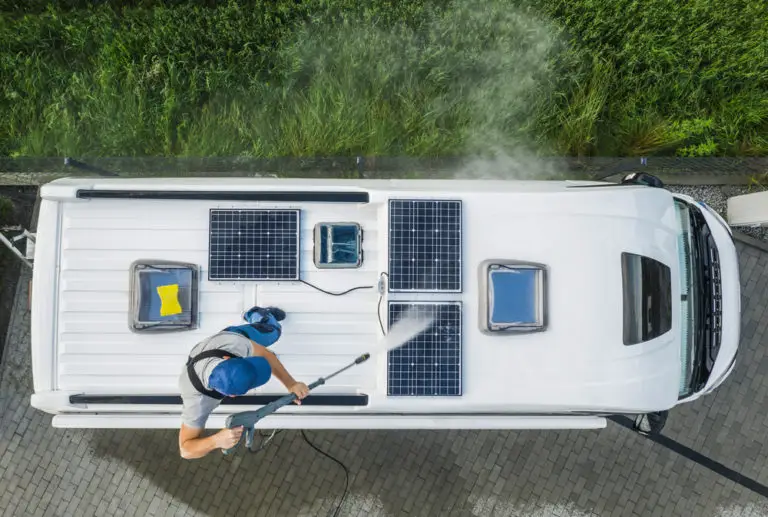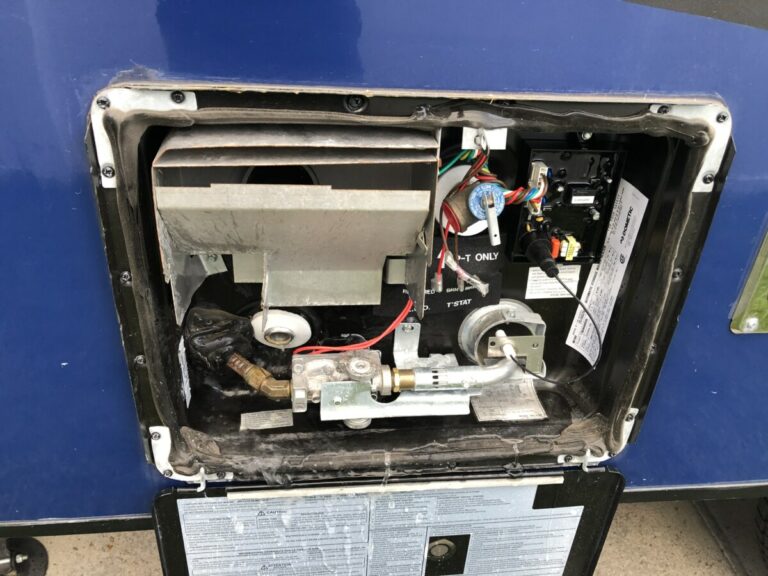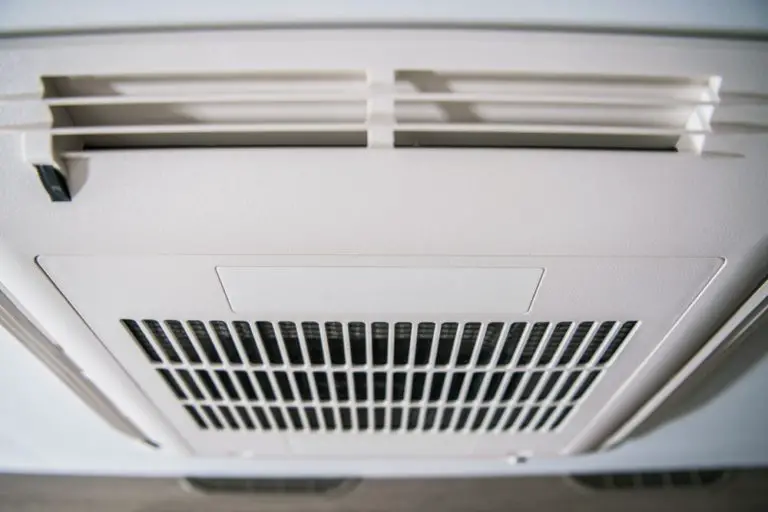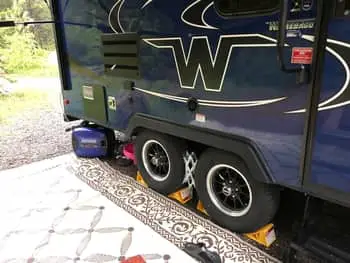The Best Ways To Dispose Of Trash When Boondocking
Boondocking presents an opportunity to experience the solitude of the wilderness but also presents some challenges when camping with no amenities. Trash buildup is one such issue that you may face when boondocking, so we have got you covered with some trash disposal ideas.
Trash can be packed out of the wilderness area and disposed of at truck stops, interstate rest stops, RV parks, campgrounds, gas stations, Forest Service dump sites, and even dumpsters at large stores when boondocking. Always ask for permission before dumping.
Trash can accumulate at an alarming rate when boondocking or camping in wilderness areas with no formal disposal site. It is important to take your trash out of the wilderness area and dispose of it safely and properly. You may not want to haul your trash all the way home, or you may need to dispose of trash in the middle of a trip. We have some ideas on how you can do this for boondocking.
Ways To Dispose Of Trash When Boondocking
Our modern lifestyle generates a mountain of trash, and unless we do some effective planning, this can pose a problem for boondocking.
From the products we use to the food we eat and even our own bodily waste products, all produce waste materials and trash that require proper disposal.
Boondocking requires that we dispose of our trash and waste in a manner that does not affect the natural environment. We need to preserve our wilderness spaces for others and ourselves to enjoy in the future and prevent our intrusion in the wilderness from becoming a problem for the local fauna and flora.
This highlights the need for a planned and effective waste disposal plan for our boondocking excursions! As part of your waste disposal plan, you will need to include methods of storing certain waste types for disposal once you leave the wilderness site. You can read our informative article on “How To Store Waste When Boondocking” for some ideas on managing this part of your waste disposal plan.
Some waste can be disposed of in the wilderness, but most of the waste generated on your trip will need to be packed out and disposed of correctly.
Paper And Cardboard Trash Disposal While Boondocking
Paper and cardboard are some of the easiest forms of trash to deal with when boondocking. These trash items actually have a secondary use when boondocking.
Paper and cardboard waste can be stored and used as kindling to start your campfire. If you have sufficient kindling, these items can be safely disposed of in your fire so long as they do not have plastic coatings.
Be careful of burning paper and cardboard in fire-sensitive areas. These items tend to produce lightweight embers that can be carried on the wind and inadvertently start brushfires in the surrounding area.
In wilderness locations where open fires are not allowed, you will have to store your paper and cardboard waste with your other trash for removal from the area and alternative disposal methods.
Other Waste Disposal When Boondocking
Once you start taking notice of the waste generated, even when camping, you will realize the volume of our global trash problem.
Food scraps, plastics, polystyrene packaging, tin cans, and many other waste products seem to follow us wherever we go. You simply put these in a trash bag at home, place them at the curb, and your problem goes away!
When boondocking, you will need to fulfill the role of garbage collection. All the waste generated while camping will need to be stored in heavy-duty plastic bags, which must be kept until they can be disposed of.
Here are some ideas regarding disposal of your boondocking trash once it has built up to the point that it must be dealt with.
- Gas stations. Some gas stations, particularly near highways, allow truckers and other long-distance travelers to dispose of their trash in the gas station dumpsters around the back. Always enquire at a gas station before simply dumping your trash in their dumpsters.
- Truck stops. Truck stops cater to this kind of waste disposal for truckers and may offer RVs the same courtesy. Sometimes a small fee is required for disposing of your trash at these facilities.
- Interstate rest stops. Many interstate rest stops provide a free dump station for anyone passing through the rest stop to dispose of their trash.
- Forest Service dump sites. Some wilderness areas are managed by the USDA or the Forestry Service, which are aware of this problem and have designated trash drop-off points. These sites will normally have dumpsters where trash can be deposited and secured so that wildlife cannot raid the bins. The dumpsters will be cleared periodically by the Forestry Service.
- RV parks and campgrounds. If you will be spending some time at an RV park or campground after your trip, it is an ideal opportunity to dispose of your trash. These facilities offer trash disposal services, which are included in the cost of your stay. If you are not booking into the RV park or campground, they may allow you to dispose of your trash in their dumpsters for a small fee.
- City parks. Picnic areas and city parks have trash cans where you can dispose of smaller trash bags but do not try and stuff your large garbage bags in these small bins.
- Large stores. Big box stores, grocery stores, and shopping centers and malls. Some of these large shops have dumpsters in a section of their parking lot for recycling. If you have separated your trash, you can make use of these facilities. Some large stores also have dumpsters around the back and will allow you to dispose of your trash there. But always ask for permission first.
Wastewater Disposal When Boondocking
Wastewater is another trash disposal problem for boondocking. Most RVs have grey and black water tanks for storing these wastewater items until they can be disposed of.
In some boondocking locations, greywater can be disposed of into the wilderness if environmentally friendly soaps and detergents have been used in specified areas. This can help minimize the need for frequent emptying of your grey water tank at a designated facility.
Each boondocking location will have different regulations for this, so you should check with the authorities before disposing of this water in the environment.
Blackwater is a totally different issue and should never be emptied anywhere other than a designated dump station.
The following locations have dump stations where you can empty your grey and black water tanks.
- Truck stops. Truck stops often have dump stations where truckers can empty out their truck wastewater tanks. Many of these work on a credit card payment system. Swipe your card, and the nozzle will open to allow the dumping of your wastewater tanks.
- RV parks and campgrounds. Many of these places have facilities available for use free of charge if you are staying overnight or will allow you to use them for a small fee.
- Interstate rest stops. Many of the interstate rest stops are now fitted with dump stations for emptying RV wastewater tanks.
- Stores or RV Dealers: Many stores such as Cabelas have dump sites as well as RV shops, lots of time these are free to lure you into their stores.
- Use your own septic tank system or sewer when you get home. You can also empty your RV waste tanks into your septic tanks at home after your trip. Ensure there are no chemicals in your RV waste tanks that would be detrimental to the biome in your septic tank and interrupt the waste breakdown process. Of course, this is only an option if you have a home base and are not living a nomadic lifestyle.
Conclusion
Getting rid of your trash when boondocking needs to form part of your planning for the trip. One way to reduce the frequency with which your need to dispose of trash is to minimize the trash-producing items you take into the wilderness with you.
With a little forward planning, you will find ample locations to dispose of your trash without sullying the wilderness with our human garbage. Boondock responsibly and preserve our wilderness for generations to come!
Be the first to be notified about FREE tips, hints, coupon codes, and email-exclusive information. All for FREE!

